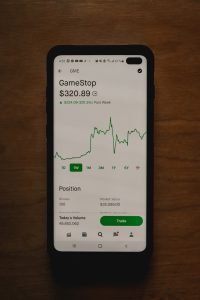Forex Trading vs. Stock Trading: What’s the Difference and Which is Right for You?
When it comes to investing and trading, there are several options available in the financial markets. Two popular choices are forex trading and stock trading. While both involve buying and selling assets for profit, there are key differences between the two. In this article, we will compare forex trading and stock trading, explore their differences, and help you determine which one might be right for you.
Forex trading, also known as foreign exchange trading, involves the buying and selling of currencies in the global marketplace. The forex market is the largest and most liquid financial market in the world, with trillions of dollars traded daily. In contrast, stock trading involves buying and selling shares of individual companies listed on stock exchanges.
One of the main differences between forex and stock trading is the nature of the traded assets. In forex trading, you are trading currency pairs, such as EUR/USD or GBP/JPY. Each currency pair represents the exchange rate between two currencies. Stock trading, on the other hand, involves buying and selling shares of specific companies. The value of stocks is influenced by various factors, including the company’s financial performance, industry trends, and market sentiment.
Another key difference between forex and stock trading is the trading hours. The forex market operates 24 hours a day, five days a week, allowing traders to participate in trading activities at any time. This is because the forex market is decentralized, with trading occurring across different time zones. In contrast, stock markets have specific trading hours, usually corresponding to the working hours of the country’s exchange. For example, the New York Stock Exchange (NYSE) operates from 9:30 am to 4:00 pm Eastern Time.
Leverage is another factor that sets forex trading apart from stock trading. Forex brokers offer leverage, which allows traders to control larger positions with a smaller amount of capital. For example, if a broker offers a leverage of 1:100, you can control a position worth $100,000 with just $1,000 of your own capital. This can amplify both profits and losses. In stock trading, leverage is less common, and most brokers require traders to have the full amount of capital to open positions.
Volatility is often considered higher in the forex market compared to the stock market. This is because currency exchange rates are influenced by a wide range of factors, including economic indicators, geopolitical events, and central bank policies. These factors can cause rapid fluctuations in currency prices, presenting opportunities for traders to profit from short-term price movements. In stock trading, while there can be significant price movements, they are generally considered to be less volatile compared to forex.
Risk management is crucial in both forex and stock trading, but the methods used may differ. In forex trading, stop-loss orders are commonly used to limit potential losses. These orders automatically close a position when the price reaches a specified level, helping to control risk. In stock trading, stop-loss orders can also be used, but other risk management techniques, such as diversification and fundamental analysis, are often employed to mitigate risk.
Choosing between forex and stock trading depends on various factors, including your trading style, risk tolerance, and financial goals. Forex trading may be more suitable for those who prefer a fast-paced, 24-hour market with high liquidity and potential for quick profits. Stock trading may be more appealing for those interested in investing in specific companies, analyzing financial statements, and taking a longer-term approach.
It is worth noting that both forex and stock trading require knowledge, skills, and experience. It is recommended to educate yourself and practice with demo accounts before risking real money. Additionally, seeking guidance from experienced traders or taking educational courses can help you gain a better understanding of the markets and improve your trading skills.
In conclusion, forex trading and stock trading have distinct differences that make them suitable for different types of traders. Forex trading involves trading currency pairs in the global market, operates 24 hours a day, and offers leverage. Stock trading involves buying and selling shares of individual companies, has specific trading hours, and may be less volatile. Understanding these differences and considering your own preferences and goals will help you decide which market is right for you.






